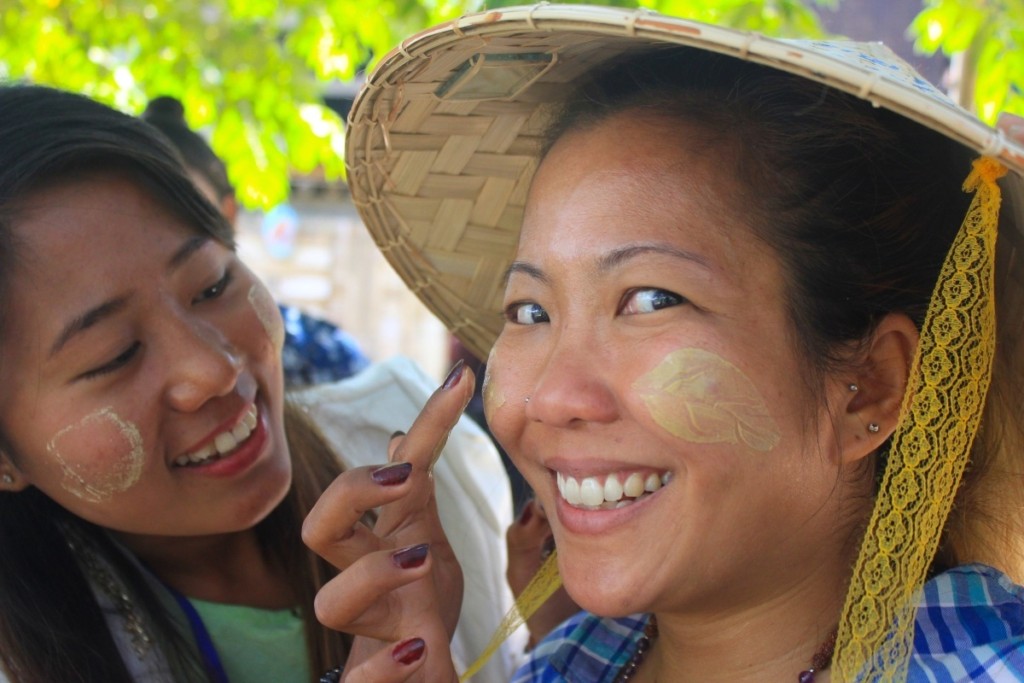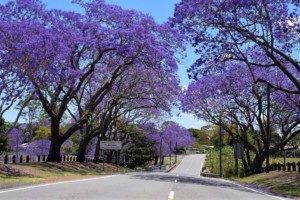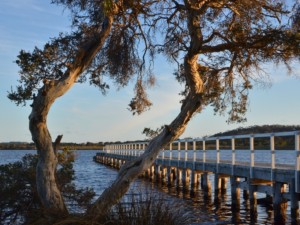Good news in tourism January 19 – 25, 2020

Happy new year of the rat! Don’t panic. “Good news in tourism” is here. Published on Sunday to be ready on Monday, “Good news in tourism” is the perfect pick-me-up for the start of a working week. And go!
Important “GT” stuff first in case you missed it during the week:
A fresh “GT” Insight on how tourism and fishing are helping to save Irrawaddy dolphins in Myanmar. It’s by Living Irrawaddy Dolphin Project co-founder Paul Eshoo. And, of course, it’s brilliant.
Geoffrey Lipman, the former top executive of IATA, WTTC, and UNWTO, and Co-Founder of “GT” Insight Partner SUNx — Strong Universal Network has called for a “moon-shot” effort by the aviation and air transport sector to be carbon-neutral by 2050.
Other good news in tourism, in no particular order:
Coronavirus: Don’t panic
“With the information currently available for the novel coronavirus, WHO [the World Health Organization] advises that measures to limit the risk of exportation or importation of the disease should be implemented, without unnecessary restrictions of international traffic.” — from “Updated WHO advice for international traffic in relation to the outbreak of the novel coronavirus 2019-nCoV” dated January 24, 2020. Situation reports.
Climate change: Don’t panic
A fun read, though — trigger warning — it may make some people anxious and depressed: “Why tourism should die — and why it won’t”. For the purposes of this post the good news is that Chuck Thompson, the author, reckons tourism won’t die. The one in 10 jobs on Earth that are attributable to travel & tourism are safe. So don’t panic.
Mr Thompson writes: “The only actual way to mitigate tourism’s impact on climate change is for humanity to stop traveling [but] I like travel as much as you do, and I’m not stopping either.” And he asks: “Where’s the line between hypocrite and addict?”
It’s a line “GT” has explored both here and here. And in doing so your correspondent has managed to disappoint at least one tourism business owner for not following the Tourism Declares Climate Emergency crew into declaring a “climate emergency”.
If it is indeed a “climate emergency” — and perhaps it is — then surely all non-essential travel should cease immediately. Perhaps it should. But it won’t. Nor is it what the signatories to the Tourism Declares initiative even want; probably because their livelihoods are at stake.
What everyone wants, “emergency” or not, is for travel & tourism to mitigate the negatives and accentuate the positives. And that is what The “Good Tourism” Blog is all about
Tourism, livelihood, and hope
“The challenges of today’s Africa, especially within the employment space, can be resolved by actively engaging the teeming youth in the sector that guarantees an inexhaustible source of livelihood.” Travel & tourism? Yep. But “guarantees” and “inexhaustible” are a bit rich!
Overfishing, not overtourism, is forcing young people from remote islands in the Philippines to search for new livelihoods. Those that find careers in tourism have “changed their lives and broadened their world”.
Wildlife conservation
Earth’s most effective conservationists think like entrepreneurs and leverage the transformative power of ownership and enterprise. Fred Nelson in the Stanford Social Innovation Review writes: “Entrepreneurial conservation is leading the way in four key areas: [1. Reforming governance; 2. Building community capacity; 3. Brokering new partnerships; and 4. New financing models] […] Conservation efforts need to generate wealth for local people from sustainable businesses.”
Tanner C Knorr, President of Second Look Worldwide, a “GT” Insight Partner, agrees: “Practical solutions are the only way forward and must incorporate business and government. Indeed, conservation is garnering investment currently, but brilliant entrepreneurs, along with favorable government policies and local community participation, will be the ones to bring the sector forward.”
The reintroduction of jaguars into the relatively new Iberá National Park in Argentina “will be a game-changer for both restoring the ecological balance and kick-starting a greater eco-tourism industry that can boost the rural economy”.
Lawyer and environmentalist Jagath Gunawardana has endorsed tourism as an important tool and incentive for species conservation. He told the Sunday Observer that Sri Lanka needed a fresh approach when promoting wildlife to tourists because people are more welfare-conscious and would boycott if they see something isn’t right.
More on Irrawaddy dolphins. Irrawaddy dolphins have reportedly been spotted colonising new areas of the Chilika Lake lagoon/estuary system in India’s Odisha state. The removal of barriers and updated tourism practices are credited with the result.
Indigenous stories
“GT” Insight Partner the World Tourism Association for Culture & Heritage (WTACH) has congratulated New Zealand’s “Central Hawke’s Bay District Council and Te Taiwhenua o Tamatea on the announcement of a NZD 2.8 million [USD 1.85 million] investment to turn Waipukurau pā sites into a cultural tourism attraction […] Telling the stories of their ancestors is so incredibly important not only for visitors but as a way to keep the memory of their history, ancestry, culture and heritage alive for future generations”.
The American Indian Alaska Native Tourism Association (AIANTA) has partnered with USA’s National Park Service to find and share the stories of Native American tribes that intersect with the 4,900-mile (7,886-kilometre) Lewis and Clark National Historic Trail.
Cultural heritage tourism
The second Lahore Biennale commences today (Sunday, Jan 26); a public event that transforms the Pakistan’s second-most populous city Lahore into “a living art gallery”. The first took place over two weeks in March 2018 and reportedly attracted more than a million visitors. Entitled “Between the Sun and the Moon”, the second edition “is significantly larger in scale and longer in duration — 12 major sites over 5 weeks — and hopes to attract over three million visitors”.
The Gujarat state government in India will soon announce a policy that will encourage owners of properties built before 1950 to convert them into hotels, museums, or for some other commercial purpose. Heritage property owners who respond will be supported with financial incentives and heritage tourism marketing support.
The city of Walla Walla in Washington state, USA hosted a meeting Thursday on a proposal to create a “Downtown National Register Historic District” with tax credits the primary incentive for property owners. Shane Laib, chair of the Walla Walla Historic Preservation Commission said the initiative could be positive for the rehabilitation of downtown, the renovation of historic buildings, and heritage tourism.
Plans for sustainability
Tourism accounts for more than 60% of the Seychelles’ economy so the industry and government are working together to ensure it doesn’t take over completely. A certification scheme and a master plan are aimed at elevating principles of sustainability and levels of local participation.
Rhodes and Santorini in Greece are the targets of pilot plans for sustainable destination development. The Rhodes plan is about destination identity, extending the tourist season, and targeting MICE (meetings, incentives, conferences, and exhibitions). The Santorini plan is focused on reducing the negative impacts of overtourism. Both are being carried out by the Greek Tourism Confederation (SETE) with the support of the European Bank for Reconstruction and Development, the Greek tourism ministry, and local chambers.
A new plan, and new funding, is aimed at tackling “some of the main challenges facing the tourism industry in Wales — seasonality, spend and spread”.
Public consultation on the draft management plan for the “Northumberland Coast AONB” in England started on Monday (Jan 20) and will run for six weeks. The AONB, which stands for “area of outstanding natural beauty”, stretches from Berwick to the Coquet Estuary. It is feared the area will reach a “tipping point”. The draft plan reckons visitors should be “enticed to other destinations around the county” instead. Meanwhile, Welcome to Yorkshire (WtY) wants to hear from “members, partners and the wider tourism industry” about “hopes and aspirations for the sector”.
Bangladesh has started putting together “a detailed master plan to ensure sustainable development of the local tourism industry”.
“Eco-Tourism”
The Parks and Wildlife Department in Texas, USA has approved plans for the South Texas Eco-Tourism Center, an indoor/outdoor facility for “educational and interactive exhibits and experiences showcasing the region’s unique ecosystems”. Funded mostly by Cameron County’s “venue tax”, the “USD 9 million facility will be built on 10 acres [4 hectares] in the town of Laguna Vista”.
The President of the Malaysian Association of Tour & Travel Agents (MATTA) reckons Chinese tourists are more likely to choose an ecotourism destination over a shopping destination these days. That’s what Malaysia’s peak private-sector tourism body is banking on as it targets 4 million Chinese visitors this year.
The “rugged and remote” West End of Rottnest Island, Western Australia, with its seal colony and other natural attractions will partake in a “AUD 33 million (US$ 22.6 million) suite of Federal and State Government projects to revitalise and build new infrastructure”.
Odds & ends
Newsy bits that don’t easily fit into this week’s arbitrary clusters:
Myanmar’s Ministry of Hotels & Tourism has relaxed travel restrictions for foreigners visiting Kayah State, allowing them to visit two previously restricted areas.
The Algarve Sustainable Tourism Observatory in southern Portugal will join the UNWTO’s International Network of Sustainable Tourism Observatories (INSTO).
India celebrated its National Tourism Day on yesterday (Jan 25).
And, finally, don’t you just love an open democratic process and a free media? Enjoy this local reporter’s account of a debate on increasing the lodging tax by 2% that took place during a Board of Aldermen meeting in Hermann, Missouri, USA, a city in which tourism is the number one industry.
Featured image: All smiles in Myanmar at the Living Irrawaddy Dolphin Project. Image by Tony Deary, which featured in the “GT” Insight “How tourism & fishing are helping to save Irrawaddy dolphins in Myanmar”.
PS: None of the items above have been fact-checked by “GT”. All terminology used here is as the linked sources used it according the knowledge and assumptions they have about it. Please comment below if you know there has been buzzword-washing or blatant nonsense relayed here, but be nice about it as the linked sources might get offended. (“GT” won’t.) And as for “GT” bringing it to your attention so that you might set the record straight, you are welcome! 🙂
PPS: It is “GT’s” policy to fully disclose partner/sponsor content. If an item is not disclosed as partner- or sponsor-related then it will have caught “GT’s” attention by some other more organic means. Partner with “GT”. You know you want to.





